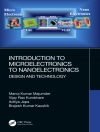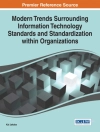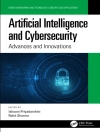The livelihoods of millions of people in developing countries, which depend on dryland agriculture to ensure their food security and their well-being, could be improved measurably by gains in agricultural crop yields. This book describes lessons learnt from an innovative scheme in India that improved crop yields in drylands. It shows how the scheme can be scaled up for other dryland regions of the world. The scheme uses localized soil nutrient analyses to create an integrated, climate smart fertilizer and planting plan that maximises yields for farmers.
This book describes how a partnership between a global scientific organization (such as International Crops Research Institute for the Semi-Arid Tropics, ICRISAT) and state and non-state actors can provide a route to equitable growth, specifically for small and marginal farmers, and how this approach can be replicated worldwide to enhance rural livelihoods. This strategic collaboration and its conceptual and functional design is fully outlined, as well as the scheme’s implementation and the effective monitoring and learning process that has been created.
关于作者
Research Program Director – Asia and Director, ICRISAT Development Center (IDC) at International Crops Research Institute for the Semi-Arid Tropics (ICRISAT), Patancheru, India. His area of specialization is scaling-up science-based interventions to benefit millions of farmers in Asia and Africa particularly in the area of sustainable agriculture for improving rural livelihoods. His expertise spans thru integrated watershed management and water use efficiency (Green, blue and grey) in field to catchment scale, wasteland development, wastewater management, biodiesel plantation, integrated nutrient management and carbon sequestration for the conservation of natural resources and their sustainable use for improving livelihoods of farmers. Livelihoods improvement for small farm holders is the main thrust of his research for development (R4D). Dr. Wani has organized number of national and international meetings and co-ordinating number of multi-disciplinary, multi country projects in the area of sustainable natural resource management and for improving livelihoods and building resilience of the farmers.












